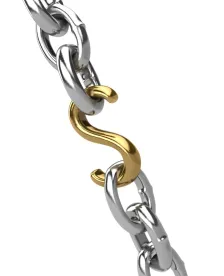On 9 July 2015, the Court of Justice of the European Union (CJEU) issued its judgment in InnoLux Corp. v Commission C-231/14P, confirming the existence of a new concept in cartel fining: “direct European Economic Area [EEA] sales through transformed products”. This new concept can be used by the European Commission to calculate fines of an amount higher than a restrictive reading of its Fining Guidelines might suggest.
Background
The judgment arose out of the liquid crystal display (LCD) cartel case, which involved several LCD producers in Asia. The European Commission determined that the cartel participants had three channels of sale into the EEA:
-
Direct EEA sales, i.e., LCD panels for IT or television applications directly sold to another undertaking in the EEA.
-
Direct EEA sales through transformed products, i.e., LCD panels incorporated intra-group into a final IT or television product and subsequently sold to another undertaking in the EEA.
-
Indirect Sales, i.e., LCD panels sold by one of the cartel participants to another undertaking outside the EEA, which would then incorporate the panels into final IT or television products and sell them in the EEA.
The Commission took the view that inclusion of the third channel was not necessary for the purposes of imposing a fine to achieve a sufficient level of deterrence, but did take account of the first two channels. InnoLux challenged the inclusion of the second channel, and the General Court of the European Union rejected the challenge.
The CJEU’s Judgment
The CJEU upheld the decisions of the EU General Court and the Commission, notwithstanding the opinion of the Advocate-General to the contrary.
The CJEU referred first to the established case law, according to which the amount of the fine imposed on an undertaking must reflect “the economic significance of the infringement and the relative size of the undertakings’ contribution to it”.
Next, the CJEU observed that, applying this principle, the existing case law (Guardian Industries C-580/12P 12 November 2014) concludes that sales of the product concerned to a related party in the EEA should be taken into account in the same way as sales direct to unrelated parties.
The CJEU then took an innovative step. It extended the approach in Guardian Industries as follows. When sales of a cartelised product are made to a related party outside the EEA, and the product is incorporated into a downstream product that is sold to independent third parties inside the EEA, the sales of the downstream product into the EEA can be taken into account in determining the amount of the fine. The value to be taken into account is not the full value of the downstream product, but the proportion of that value that corresponds to the value of the cartelised product that was incorporated into the downstream product.
The CJEU emphasised that this case was not about whether or not the Commission had jurisdiction. The Commission’s jurisdiction was not in dispute because the cartel participants, including Innolux, made some sales of LCDs direct to independent third parties in the EEA.
Practical Consequences
The case shows that the CJEU is prepared to give a wide interpretation to the expression in the Commission’s Fining Guidelines: “the value of the undertaking’s sales of goods or services to which the infringement directly or indirectly … relates … within the EEA”. This enlargement of the Commission’s fining powers should be highlighted in all competition compliance programmes.



 />i
/>i
